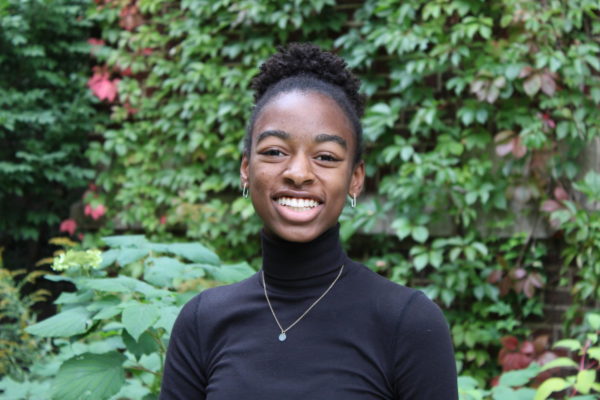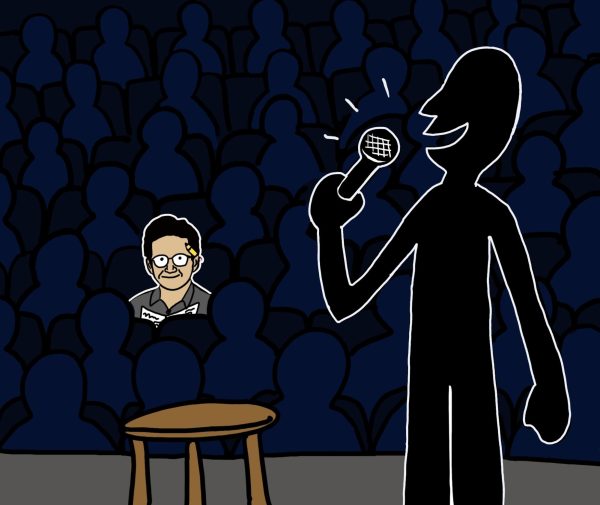Season 3 of Netflix’s ‘Never Have I Ever’ brings a big milestone for inclusion to the small screen
In April 2020, The Office alum Mindy Kaling launched the comedy/coming-of-age series Never Have I Ever (NHIE). The show, partially inspired by Kaling’s childhood, follows 15-year-old Devi Vishwakumar as she grapples with her father’s traumatic death and attempts to redefine her social standing in her sophomore year. Tennis champion John McEnroe narrates as Devi (Maitreyi Ramakrishnan) falls for teen jock Paxton Hall-Yoshida (Darren Barnett), competes with annoying know-it-all Ben Gross (Jaren Lewinson), argues ferociously with her mother (Poorna Jagannathan) and confides in her closest pals (Lee Rodriguez, Ramona Young). All of this happens as Devi tries to define her sense of identity and self-worth. The show was an immediate success during the pandemic and has since led to a second and third season. Although there are some mixed reviews about the series’ new installment, there’s no denying that the show’s representation of South Asian characters is valuable and not something to overlook.
In the season 2 finale, Devi established a relationship with heartthrob Paxton Hall-Yoshida, much to the dismay of her academic arch-nemesis, turned ex-lover Ben Gross. The first few episodes of NHIE season 3 illustrate just how well she’s maintained this romance: terribly. Devi is perpetually insecure to the point where she feels paranoid about her peers judging her and Paxton’s relationship. On top of this, she feels pressure from herself and her mom to do well in school.
When asked about Devi’s struggles, junior Jocelyn Leigh says, “There were a lot of moments that showed [Devi] trying to juggle academics, extracurriculars, family, and so much more. [Kaling’s choice to] show teens trying to navigate their way through high school and adversity in life [makes the series] very relatable.”
Junior Emma Socas agrees that the show depicts her experiences in high school.
“I relate to some of the characters, and not just identity-wise, but also because it shows the immense pressure that teens put on themselves to—not just do well in school—but the constant worrying about the future.”
Notably, the show is a drama, meaning Devi experiences many hard-to-believe, bizarre moments too.
“The show can be pretty unrealistic at times in terms of how high school works, but I feel like it gives you insight into how other people in high school may feel or what they might experience, and [it’s] just funny to watch. It also has some very sweet moments,” says Leigh, who found season 3 particularly easy to binge-watch.
Socas also binged the show, finishing the ten episodes in the three days between the show’s release and the beginning of school.
“It was entertaining,” Socas says, “so whatever [Season 4] is, I’ll watch it because it’s just a show you watch that isn’t all that good, but isn’t all that bad.”
Though many students think the show is mindlessly entertaining (almost like eating a bag of chips), there are real elements of substance. For example, the show attempts to feature a diverse set of experiences that provide more representation than most high school shows.
“Representation can be a lot of different things, except it’s usually just that one side character, but here the representation was in your face,” Socas says, “and it should be in your face.”
When stumbling upon the casting call-out, Maitreyi Ramakrishnan understood that if she landed the role of Devi, she would be the face of a strong Asian-American protagonist that could inspire other girls. “Why not me?” she thought to herself.
The show’s representation and inclusion allows people to see themselves as the main character, not just the token side piece. NHIE also debunks common myths about Indian culture, like when Kamala explained to her boyfriend that arranged marriages aren’t a barbaric practice, but instead are a way for her to honor her family.
Although NHIE is paving the way for representation in comedy/teen dramas, the show alone cannot change the industry. Indian (and other Asian) students deserve to see more diversity presented by creators on screen. NHIE depicts Devi’s financially stable, secure life, but this life is not the case for all Asian Americans. In the future, we hope to see production companies create shows featuring characters from different families and socioeconomic backgrounds, protagonists who are neurodiverse, stories with LGBTQ+ romance plots, and more.
Similar to past seasons, season 3 finished on a cliffhanger. The last scene depicts sparks flying between Devi and Ben, and viewers question whether something romantic will happen between them. For those with queries, it seems season 4 will wrap up all the loose ends. Co-creator Lang Fisher said: “There is a choice. [Devi] makes a choice…The winner wins. […] ‘One team is going to be really mad at me. Team Paxton and Team Ben… get ready.”
This would be the time to get your pitchforks ready, folks! The show will definitely come to an emotional end. If you’re upset, it may be comforting to know the cast members feel the same way: many have expressed their sadness about the finale but excitement to embark with Devi on her final school year. With that said, Mindy Kaling has been vocal that if viewers are interested, she would consider running a spin-off series with one of the side characters.
There’s no denying: NHIE is progressing South Asian representation, and the fact that people are giving this attention reveals that they are ready and willing to see more diversity in mainstream media. In the final season, we hope to see Never Have I Ever’s inspiring inclusivity become a flashlight for the rest of the industry to follow.
Your donation will support the student journalists of the Evanstonian. We are planning a big trip to the Journalism Educators Association conference in Philadelphia in November 2023, and any support will go towards making that trip a reality. Contributions will appear as a charge from SNOSite. Donations are NOT tax-deductible.












